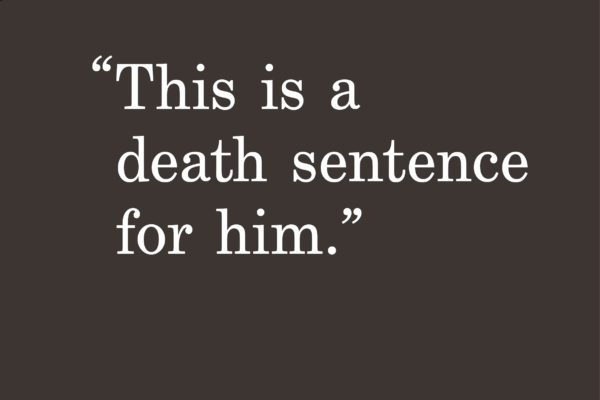Ever since the COVID-19 pandemic hit our Commonwealth, the ACLU of Virginia has focused on holding the government and law enforcement accountable for their actions – both when they overstep and limit our civil liberties beyond what experts recommend, and when they put lives at risk from doing nothing.
It is clear that Virginians are impacted by this virus at every level, and among the most vulnerable are Black and brown people, including the disproportionate number held in Virginia’s custodial facilities.
On March 19, we launched the COVID-19 email and phone hotline to better understand how the pandemic is affecting the civil liberties and civil rights of Virginians. In eight weeks, the hotline has received nearly 300 complaints relating to COVID-19, ranging from housing/eviction concerns to the use of solitary confinement in prisons, jails and detention centers as a means of quarantine. We also joined a lawsuit against the Virginia Department of Corrections (VDOC) on behalf of 27 people who are incarcerated in Virginia prisons, and last week we entered into a court-approved and court-monitored agreement with VDOC that sets up a crucial enforcement arm to make sure VDOC gives people prompt medical treatment, access to cleaning and hygiene supplies and appropriate protective equipment. Unfortunately, we’re already getting reports that VDOC isn’t living up to the promises it made to us and the court. If that’s the case, we’ll be back in court again soon. That’s why it is important for us to continue to hear from you, and for all of us to stay vigilant.
Through the hotline, we have heard from over 150 people with incarcerated loved ones who reported that people are in danger, and they are terrified now that the virus is in the prisons. They have submitted complaints regarding 27 different local and regional jails and 40 prisons run by VDOC. Most of these complaints relate to:
- Early Release (46%)
- Sanitation & Hygiene (20%)
- Access to Medical Treatment (9%)
Family, friends, and advocates are concerned that the state and local custodial facilities are filthy and unhygienic, access to healthcare is inadequate, and overcrowding makes it impossible to practice social distancing. Imagine living in these conditions and then being hit with a COVID-19 outbreak with nowhere safe to go. That is the reality for the roughly 66,000 people who are incarcerated in Virginia.
Imagine living in these conditions and then being hit with a COVID-19 outbreak with nowhere safe to go. That is the reality for the roughly 66,000 people who are incarcerated in Virginia.
QUARANTINE
Quarantine is the practice of isolating potentially infected or exposed people from the rest of a population in order to prevent further spread of a disease, and it looks very different behind bars than it does for the population at large.
Overcrowding in facilities has resulted in VDOC assigning people to small solitary confinement cells with little or no sunlight. Some groups of people have been relocated to previously abandoned buildings with no running water, heat, A/C, or beds. Their access to proper sanitation, hygiene, and medical care is greatly reduced for days, if not weeks. We have received reports that people have been held in solitary confinement for up to 45 days with little to no medical attention and, sometimes, only 30 minutes outside of their cell every other day.
As we continue to hear more about what is happening inside Virginia’s custodial facilities, we are confronted with the difficult fact that people who are incarcerated are quarantined while the guards are not, yet the staff of facilities are free to enter the facilities and return to their communities, possibly bringing the novel coronavirus into the facility or carrying it out of the facility into the community.
CORRECTIONAL OFFICERS
VDOC told the public that they are doing everything they can to keep people in prisons safe. The day-to-day reality inside VDOC facilities paints a different picture, however. Unlike correctional officers, people who are incarcerated do not have access to cleaning wipes, alcohol-based hand sanitizer, or other cleaning agents recommended by the CDC to prevent spreading the virus. So, when approximately 15% of our hotline complaints pertain to correctional officers (COs) not wearing personal protective equipment or not following proper sanitation guidelines, it begs the question: What measures are being taken to safeguard our loved ones from the spread of the virus within these crowded walls? Family, friends, and advocates report that staff are not changing gloves to decrease contamination, including medical staff. In some cases, COs have arrived to work with COVID-like symptoms without being screened or quarantined. Even worse, there have been reports of COs intentionally coughing on people who are incarcerated. This kind of harassment and cruelty is unacceptable.
EARLY RELEASE
There are roughly 66,000 people incarcerated in Virginia, many of whom are in high-risk categories because of their age and/or underlying medical conditions. Despite the threat posed by COVID-19, few people have been released from Virginia’s prisons, jails, and custodial facilities. Many people behind bars suffer from severe medical conditions such as cancer, lung and heart disease, diabetes, or acute mental illness.
Family members and friends report a significant decrease to medical care access since COVID-19 made its way into these facilities. People are desperate to get their loved ones out of these horrific conditions, and early release is mentioned in almost 50% of the correspondence received through the COVID-19 hotline.
Remember: These people were not sentenced to die. The best way to protect people who are incarcerated is to release as many people as possible, increase access to medical care, and follow CDC guidelines to prevent the spread.
As the number of deaths and infections from COVID-19 continues to grow, we must focus on efforts to protect the health and well-being of all people housed and working inside Virginia’s custodial facilities. We encourage people to keep reaching out to us to report on conditions inside custodial facilities through our hotline.

